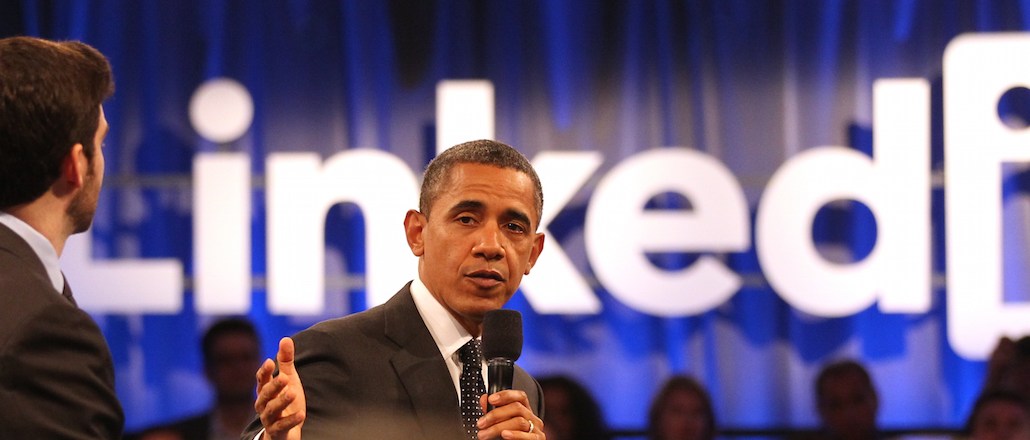
Microsoft surprised just about everyone on Monday with one of the biggest tech deals in history when it reached a deal to buy LinkedIn for $26.2 billion. Such a major acquisition is bound to have far-reaching impacts on Microsoft and the broader tech industry.
LinkedIn, which had been struggling like some other public tech peers, saw its stock retreat this year as it missed revenue projections and saw its ad business flatten.
Now, it has one of the biggest companies in the world backing its business. Microsoft gets a foothold in social data, controlling a significant player with more than 400 million users in a space that the company has dabbled in for years.
Here are the winners and losers of the deal.
Winners
Twitter
“Any company even in the periphery of this space saw its valuation just go up,” said David Simutis, project manager at ad tech firm Sizmek. “It’s certainly good for Twitter, because that’s a massive valuation on something that’s basically a resume site.” Indeed, yesterday Twitter had a rare good day in the public markets, with its stock rising about 4 percent. It wasn’t enough to completely turn around the company, but it gave investors hope that Twitter could sell, too, and for potentially big dollars.
Slack also could benefit from LinkedIn’s high price tag, because it looks more attractive, t00. And don’t forget Yammer. Microsoft paid $1.2 billion to acquire it in 2012, only to see it mostly fade in buzz compared to Slack.
Skype
Microsoft’s enterprise solutions are the big beneficiaries of — and the big reason for — this deal. Microsoft will find ways to integrate LinkedIn into what it already offers businesses like Office 360, Outlook and Skype. Microsoft CEO Satya Nadella envisions enterprise software integrated with LinkedIn so when people are on Skype conference calls they can automatically call up participants’ profiles, and other seamless features.
Advertisers and publishers
LinkedIn is still a go-to publishing and ad platform for business-focused marketers, according to Dave King, vp of marketing at Percolate, a LinkedIn platform partner. Microsoft has promised LinkedIn autonomy, which King said is key to its future. “The success of the acquisition depends on how much autonomy Microsoft gives LinkedIn. Brands and publishers trust LinkedIn. Microsoft can use its balance sheet and product integrations to fuel LinkedIn’s growth but needs to be very careful not to violate the trust users have in the LinkedIn brand,” King said.
Losers
Verizon-AOL
For now these two are losers, because it’s unclear what Microsoft will do with LinkedIn’s ad business. In fact, Microsoft has claimed LinkedIn will remain autonomous, which presumably mean its ad sales team as well. But we know how that turned out when Facebook said Instagram would remain independent.
It is unknown how LinkedIn will fit with AOL and its parent company Verizon, which handle Microsoft’s ads now. “Down the road maybe there’s the potential for collaboration between LinkedIn and the AOL-Verizon sales team that handles Microsoft,” said Melissa Parrish, a Forrester analyst. LinkedIn’s user data, profiles on hundreds of millions of business professionals, could bolster AOL and Verizon’s ad business.
Microsoft’s debt
LinkedIn appears to be a good fit for Microsoft, but no matter how well suited for each other the price tag of $26.2 billion was staggeringly high. Many observers were shocked by how much Microsoft was willing to pay, and it might even impact its credit rating, because it has to borrow to finance the deal. It doesn’t represent all of Microsoft’s money, but it’s a healthy sum to pay for a “resume” company.
Twitter, again
Twitter is both a winner and loser in the wake of the LinkedIn deal, because more investors could agitate for a sale. Its leadership would have to entertain any offer it came in anywhere remotely close to what Microsoft paid for LinkedIn.
More in Media

Digiday+ Research: Dow Jones, Business Insider and other publishers on AI-driven search
This report explores how publishers are navigating search as AI reshapes how people access information and how publishers monetize content.

In Graphic Detail: AI licensing deals, protection measures aren’t slowing web scraping
AI bots are increasingly mining publisher content, with new data showing publishers are losing the traffic battle even as demand grows.

In Graphic Detail: The scale of the challenge facing publishers, politicians eager to damage Google’s adland dominance
Last year was a blowout ad revenue year for Google, despite challenges from several quarters.





